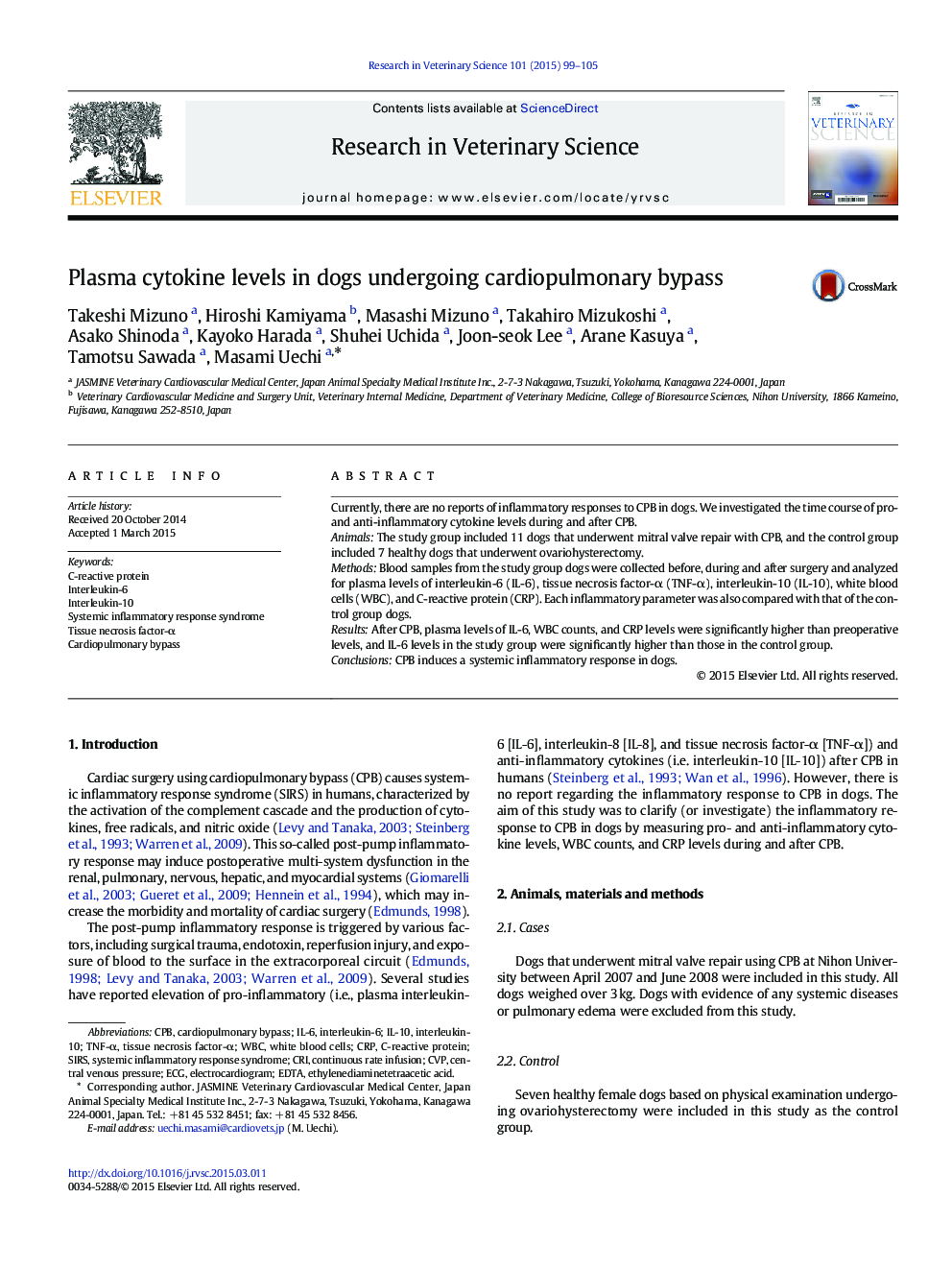| Article ID | Journal | Published Year | Pages | File Type |
|---|---|---|---|---|
| 5794779 | Research in Veterinary Science | 2015 | 7 Pages |
â¢We investigated whether cardiopulmonary bypass become a trigger of systemic inflammatory response in dogs.â¢We analyzed plasma levels of interleukin-6 (IL-6), tissue necrosis factor-α (TNF-α), interleukin-10 (IL-10), white blood cells (WBC), and C-reactive protein (CRP).â¢After CPB, plasma levels of IL-6, WBC counts, and CRP levels were significantly higher than preoperative levels.â¢CPB induced a systemic inflammatory response in dogs.
Currently, there are no reports of inflammatory responses to CPB in dogs. We investigated the time course of pro- and anti-inflammatory cytokine levels during and after CPB.AnimalsThe study group included 11 dogs that underwent mitral valve repair with CPB, and the control group included 7 healthy dogs that underwent ovariohysterectomy.MethodsBlood samples from the study group dogs were collected before, during and after surgery and analyzed for plasma levels of interleukin-6 (IL-6), tissue necrosis factor-α (TNF-α), interleukin-10 (IL-10), white blood cells (WBC), and C-reactive protein (CRP). Each inflammatory parameter was also compared with that of the control group dogs.ResultsAfter CPB, plasma levels of IL-6, WBC counts, and CRP levels were significantly higher than preoperative levels, and IL-6 levels in the study group were significantly higher than those in the control group.ConclusionsCPB induces a systemic inflammatory response in dogs.
Graphical AbstractDownload full-size image
